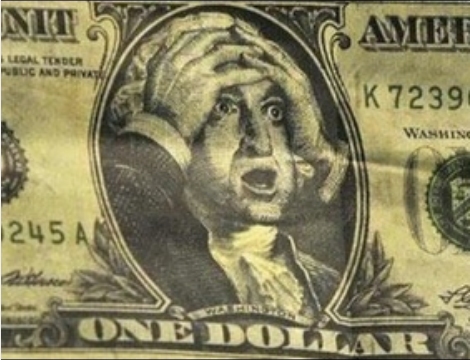 David S. Burnett
David S. Burnett  • Jan 29, 2016 • 4 min read
• Jan 29, 2016 • 4 min read
Why Not Keeping Accurate Books Will Cost You More in the End
By Jared Hecht, Co-founder and CEO, Fundera
Published on: Jan 29, 2016
https://www.inc.com/jared-hecht/why-not-keeping-accurate-books-will-cost-you-more-in-the-end.html
You're a busy business owner. There are so many tasks and clients clamoring for your attention all day long that bookkeeping is probably the last thing on your mind. And as stacks of invoices, expense receipts, and other paperwork pile up, it gets ever more tempting to tell yourself you'll deal with them tomorrow...or next week...or next month.
Small business owners frequently hope to save on costs by going the DIY route for bookkeeping rather than hiring a professional bookkeeper. That's all well and good provided you have the time and the know-how to keep accurate records. But inaccurate bookkeeping--whether your books are simply out of date or in total disarray--will cost you plenty in the long run. Here are some of the expensive dangers of bad bookkeeping.
Obscures the Big Picture
Your books provide a snapshot of your company's financial viability. Without good records, that snapshot will be out of focus. Inaccurate bookkeeping results in inaccurate reports about your cash flow.
Your business may be struggling financially, but without a paper trail, you won't be able to clearly see what's causing the problem. Worse, you may not be able to tell that there is a problem.
Causes Costly Mistakes
Miscalculating profits or costs due to bad bookkeeping can be disastrous. Overestimating your profits when filing taxes needlessly increases your taxes owed, while underestimating them can lead to an audit and fines. Miscategorizing assets (for instance, long-term assets that depreciate over time) and expenses can lead to your paying more in taxes than you need to.
Even a small error can snowball over time if it's not caught early. If you're not regularly reconciling your books with your bank statement, this type of innocent mistake may go unnoticed until it causes significant damage to your finances.
Increases Your Chances of Being Audited (and Tax Penalties)
Filing taxes late or having exemptions, expenses, or deductions that don't add up raises red flags with the IRS--leaving you vulnerable to an audit. "Even if you have all your ducks in order and can defend your deductions and support your income, the process is still time-consuming, costly, and nerve-wracking," says Bonnie Lee. How much more unpleasant will an audit be if your ducks arenotin a row? And then there's the matter of any irregularities an audit may turn up, and the penalties that go with them.
Minimizes Your Tax Deductions
You have to document expenses to claim them when you file your taxes, right? Misplaced or overlooked receipts prevent you from being able to claim expenses as write-offs. And without accurate books, your accountant won't be able to spot every deduction you are eligible for. Make sure you are getting every tax advantage you deserve.
Leads to Payroll Problems
Just as with any other aspect of your finances, payroll is affected by inaccurate records. You may be over- or under-compensating employees on their paychecks or with benefits, and not even know it. And an error that carries over to an employee's W-2 from your own records causes tax problems for them as well.
Increases Your Invoicing Cycle
Without accurate records, you won't be able to keep straight who owes you what - which means it will take you longer to organize and send invoices. And the longer it takes you to invoice outstanding accounts and get paid, the longer you'll go without those funds. Or you may overlook sending an invoice at all, and never receive payment. Cleaning up your books will help you speed up and streamline your invoicing so that you can get paid in a timely fashion.
Racks Up Late and Overdraft Fees
Falling behind on your bookkeeping makes it easy to fall behind on bills as well. The Fresh Diet CEO Zalmi Duchman estimates that hiring a bookkeeper to keep his records in order saves his company "$500 to $1,000 in late fees per quarter." Likewise, inaccurate books may result in overdrafting accounts and all the related fees.
How much couldyour business be saving on fees? (That's a trick question--how would you know how much you're currently losing in late fees without accurate books?)
Limits Your Financing Options
Messy books can seriously limit your options for getting loans. Ami Kassar tells the story of a client in a bind who needed money fast. But due to his six-months-out-of-date books, the best he was eligible for was a cash advance.
Small business owners who need a loan--particularly in an emergency--may find themselves in a similar situation without accurate, up-to-date financial records. Don't let bad bookkeeping stand in the way of loan opportunities.
Is Expensive and Time-Consuming to Fix
Once your books are a mess, they will take money and time (lots of each) to get in order. It's a hole that's difficult to dig out of - but absolutely necessary. You'll need to hire a bookkeeper just to make sense of your current records and to set you up with a system for the future, regardless of whether they take over your bookkeeping long-term. If your books are chaotic, or if you see that you're consistently falling behind on your record-keeping, it's time to bring in a professional bookkeeper to help safeguard your business from these pitfalls.
Your financial records should guide all of your business decisions, such as when to hire more staff, seek a loan, or invest in equipment or inventory. But your decisions will only be as good as the information you have.









